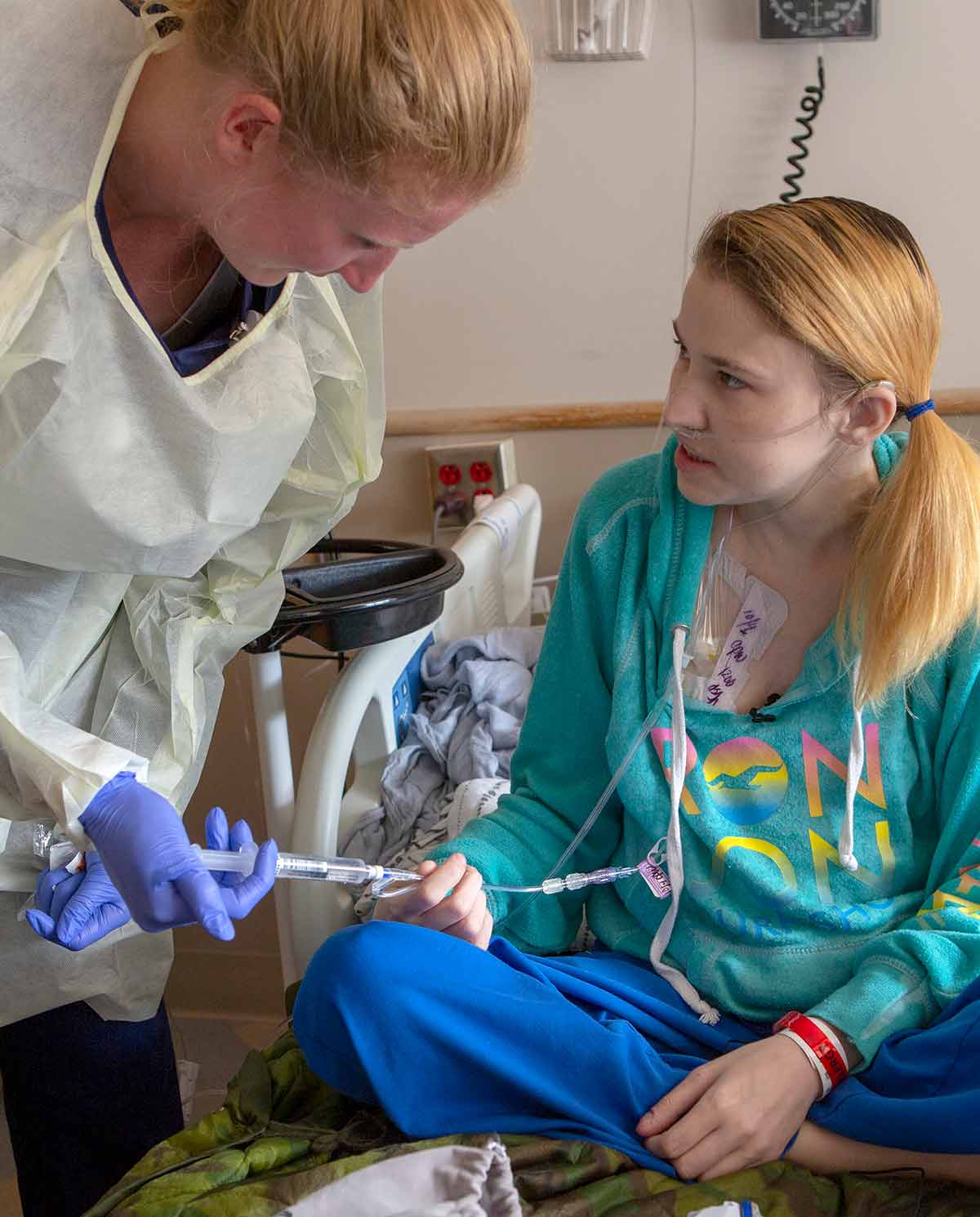Positive attitude beats ‘stupid bum lungs’ for cystic fibrosis patient

At age 33, Alyssa Kibler has already outlived her life expectancy—twice.
“I wasn’t supposed to live to be a teenager, and then when I was a teenager, I wasn’t supposed to live past 30,” said the Harrisburg woman who was born with cystic fibrosis (CF). “Personally, I feel like I’m going to live forever.”
Her optimism comes partly from new medicines, airway clearance techniques and nutritional support that have given CF patients longer life, but largely from an inner strength that seems to come naturally.
“CF always hangs over your head, but I have this attitude that I won’t give up,” said Kibler, who takes up residence at Penn State Health Milton S. Hershey Medical Center four to five times a year for several weeks at a time to get lifesaving IV antibiotics.
- Watch a video about Alyssa and her battle with CF.
The genetic disease causes thick, sticky mucus to build up in the lungs and digestive tract and leads to life-threatening infections. It can also obstruct the pancreas and stop natural enzymes from helping the body break down and absorb food.
“Cystic fibrosis used to be a pediatric disease that rarely allowed kids to live to adulthood. Now it’s an adult disease that happens to start in childhood,” said Dr. Randy Young, director of the Division of Pulmonary and Critical Care Medicine at the Milton S. Hershey Medical Center, which offers an extensive program for evaluation and treatment of a wide variety of pulmonary ailments.
The Cystic Fibrosis Care Center at Hershey Medical Center is one of about 120 nationwide that is funded and accredited by the Cystic Fibrosis Foundation. The next closest center is about 75 miles away.
“Our team approach is a hallmark of our care. We bring pulmonologists, respiratory therapists, nurses, pharmacists, social workers and dieticians to the bedside to help our patients achieve their maximum potential,” Young said. “The course of cystic fibrosis is one of waxing and waning. You may feel really good for weeks or months and then experience exacerbations.”
Kibler was diagnosed at age 1 and has been treated at the Medical Center since she was in elementary school.
“I trust them 100 percent, and that feels great,” she said.
Read the complete article on Penn State Medicine.
If you're having trouble accessing this content, or would like it in another format, please email Penn State Health Marketing & Communications.
